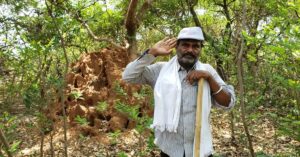How a Biker’s Free Driving Lessons Are Helping 3000 Women Gain Financial Freedom
With an aim to break the gender imbalance in the transport sector, Jai Bharathi started MOWO Social Initiatives, a venture that trains women in driving for free and has helped several get subsequent jobs.
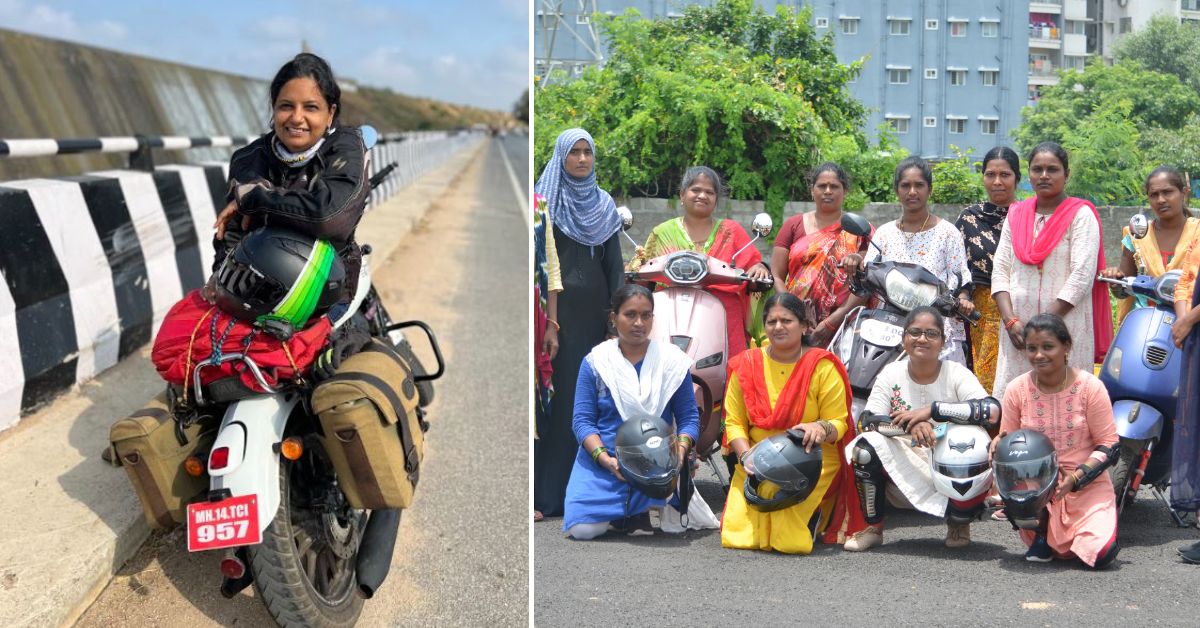
Hyderabad’s Naseem Khatoon shatters stereotypes related to women drivers every day. As she steers the handlebar of her auto-rickshaw on the busy city roads, she feels a sense of empowerment.
She recalls that when meeting financial expenses became difficult for her husband, a religious scholar who takes tuition, the 32-year-old stepped in to support him in raising their two daughters and son.
“These days, even teaching children is so expensive. Our monthly house rent is Rs 8,000. I found driving as a good option to earn a decent income. Now, both of us are able to meet household expenses,” Naseem, who earns up to Rs 2,000 a day, tells The Better India.
But this was not as easy. “My family, except my husband, was against my decision. They said, ‘What would our khandan (relatives) say if they found out about [your] work?’. But I did not bother. I got good support from the public, especially women passengers, who felt safe with me. This boosts my confidence and today, I feel empowered,” she adds.
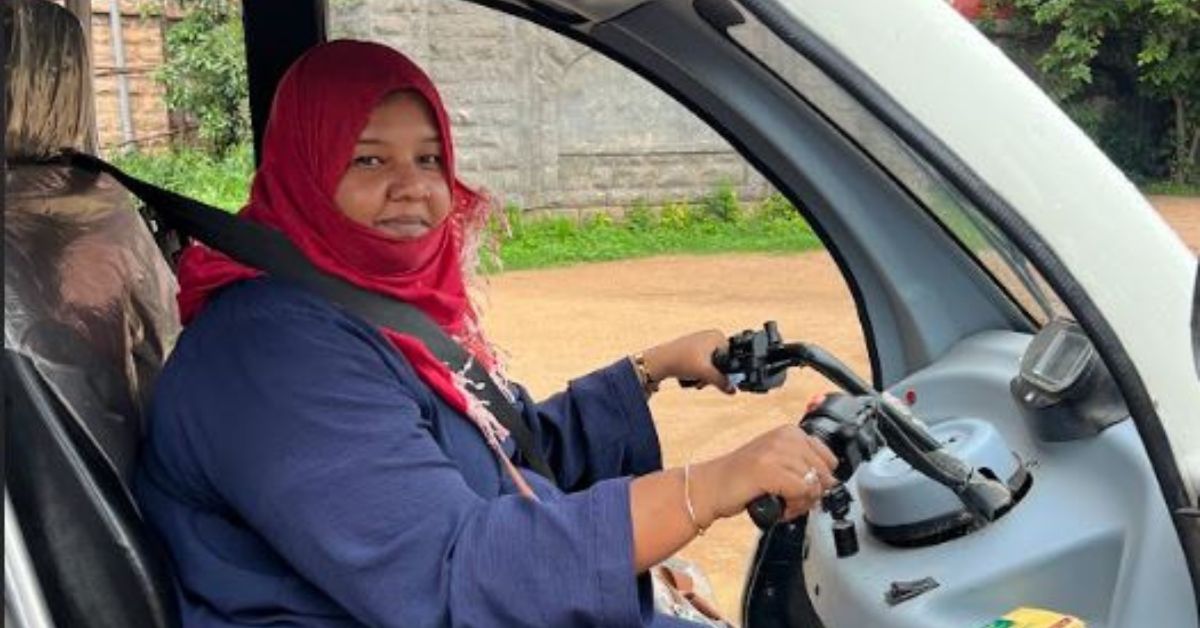
In 2022, Naseem enrolled in a motor training startup — MOWO (Moving Women) Social Initiatives — who schooled her to drive within two weeks without charging a buck. Behind this is Hyderabad’s Jai Bharathi, who started the initiative with the aim to break the gender imbalance in the transport sector.
When women are on the road
An architect by profession, Bharathi learnt to drive a moped when she was 16. With the help of college friends, she learnt to ride a motorcycle over the weekends. “But I drove for fun. I did not realise my passion lies in motorcycling until the last decade, when I started participating in expeditions,” the 41-year-old tells The Better India.
Since 2013, she has driven more than 1 lakh kilometres on several road trips including from Kanyakumari to Kashmir on her bike. In 2018, she got an opportunity to lead a group of women riders on the Road to Mekong — a 17,000-kilometre expedition across India, Myanmar, Thailand, and Vietnam.
“During the 56-day journey from February to April, I saw many women, all bike taxi drivers in their mid-40s, happily working as bike taxi drivers. They could drive anytime they want. But in our country, there is a gender imbalance in the sector. Driving a scooter or a three or four-wheeler was always considered a male dominant job in India,” she adds.
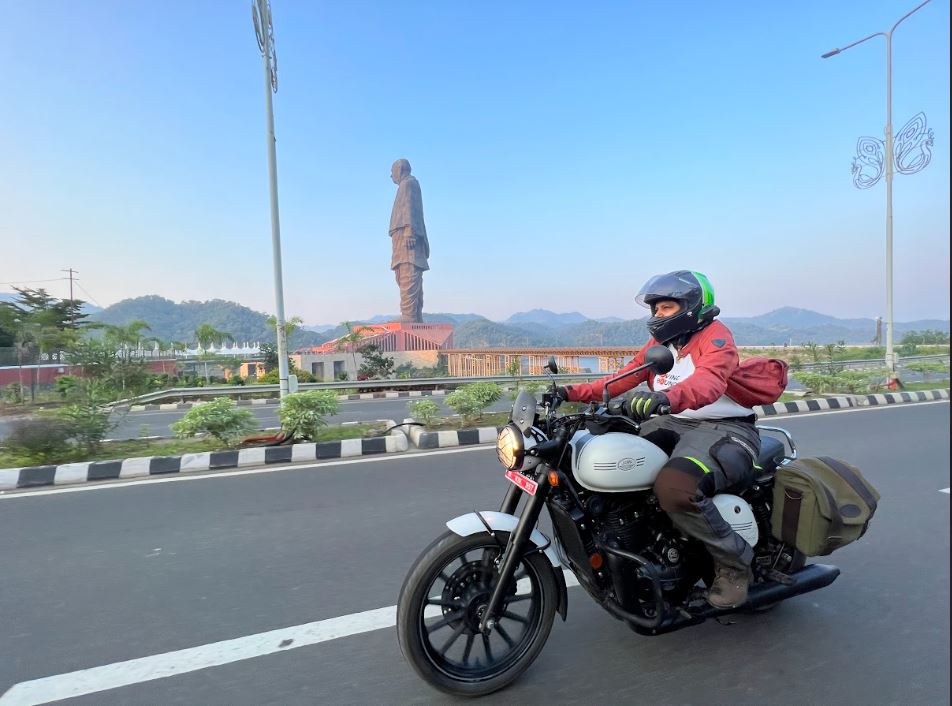
Bharathi realised that there is no organised effort to teach mobility as a skill to women in India. “For scooters and three-wheelers, there are not so many formal training institutes. Family members are also unable to train them properly. Women are not encouraged to look at driving as a skill that we need in today’s world. That is the socio-cultural gap. And if they meet an accident, women go into panic mode and give up,” she says.
“Because I know how to drive, I have experienced confidence and independence while I am on the road. I wondered why not offer that as a tool of empowerment and employment to women, instead of jobs that restrict them within four walls,” she adds.
So, in a bid to transform women’s lives in the mobility sector, she started MOWO in 2019.
Steering social transformation
Bharathi works with a network of nonprofits, women self-help groups, and motor vehicle manufacturers, to impart training to low-income group women. She started MOWO with Rs 5 lakh of her savings, and has been pivotal in setting up the training school on a 1-acre land in the city, established by the Department of Women & Child Welfare, Government of Telangana.
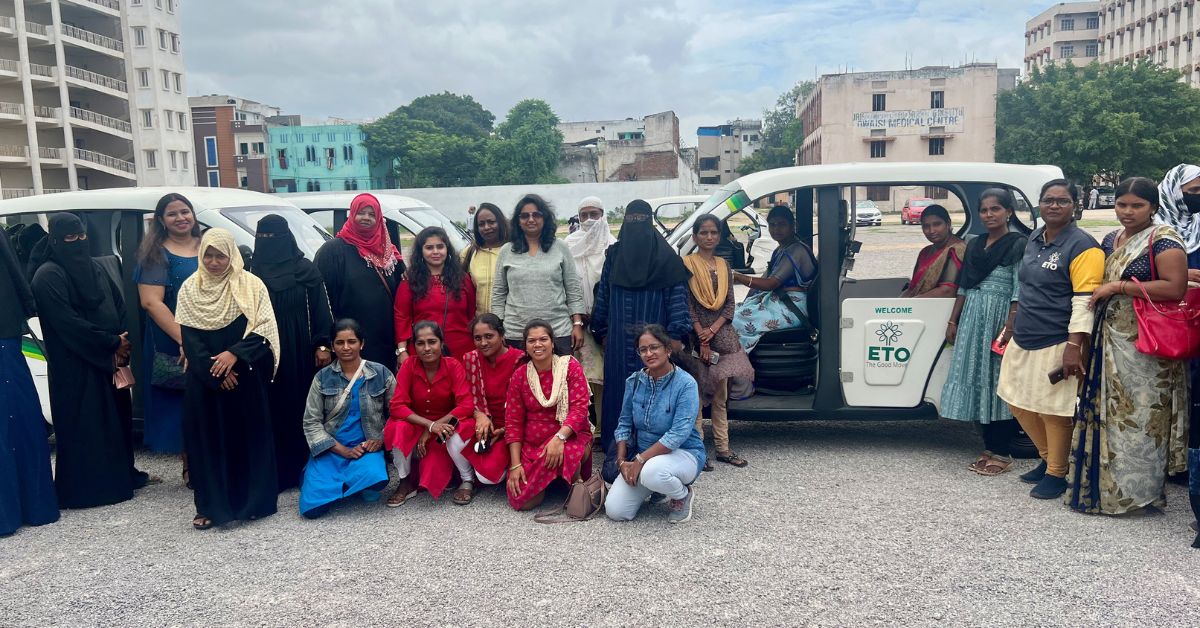
Explaining how the training school functions, Bharathi says, “We work on three pillars: advocacy, motor training, and building the ecosystem.”
“First, we raise awareness among low-income women through campaigns. Then, we train women with the help of our women instructors. We are also focused on institutionalising the concept of mobility so that these women enter into the workforce,” she says.
Bharati says that her team does not stop at training women, they are also helping women get jobs. “Although we teach women how to drive not with a focus that they have to become drivers, but with a focus that she learns it as a skill and then access opportunities as per their wish,” she says.
Highlighting one of the biggest challenges Bharathi faces in training women to drive, she says, “Women are not confident taking vehicles on the road. Compared to men, they are subconsciously raised with fear in mind in terms of driving. We invest a lot of time in helping them to overcome their fear, because learning to drive is the easiest thing. All of our women were able to learn to drive within 15-20 days,” she says.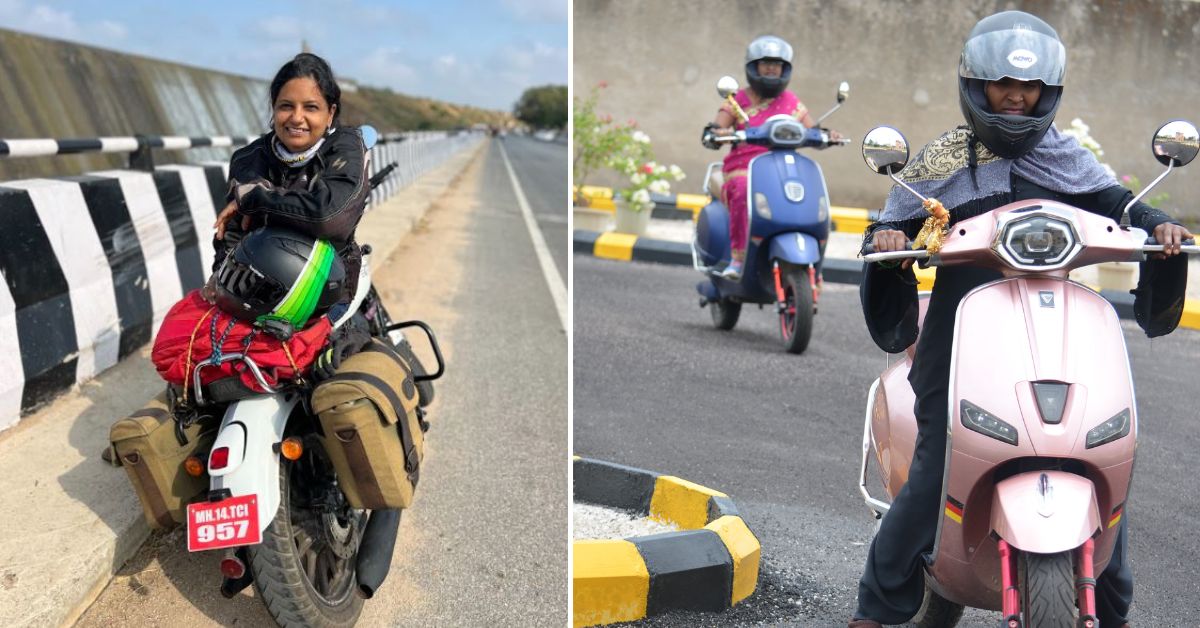
With MOWO, Bharathi has been able to train more than 3,000 women and 200 women from low-income groups such as homemakers, gardeners and sanitation workers, to drive two-wheelers and three-wheelers, respectively, across Telangana. Besides, she has been able to help at least 100 women get a job in companies like ETO Motors, Blue Dart, and Uber Eats.
While taking pride, Bharathi says, “Some of our women have got their own auto-rickshaws, some have got jobs as delivery executives, some are not dependent on male members to take them to a place. For these women, even putting the vehicle on a centre stand is a proud moment.”
“We see women coming to us with happy tears. Their families are also content that they learnt to drive. They never dreamt they could drive and finally, they are driving. We see that change every single day. That is what keeps us going. By 2030, we wish to enable one million women in mobility,” she adds. If you found our stories insightful, informative, or even just enjoyable, we invite you to consider making a voluntary payment to support the work we do at The Better India. Your contribution helps us continue producing quality content that educates, inspires, and drives positive change. Choose one of the payment options below for your contribution- By paying for the stories you value, you directly contribute to sustaining our efforts focused on making a difference in the world. Together, let’s ensure that impactful stories continue to be told and shared, enriching lives and communities alike. Thank you for your support. Here are some frequently asked questions you might find helpful to know why you are contributing?

Edited by Divya Sethu; All pictures courtesy Jai Bharati
This story made me
- 97
- 121
- 89
- 167





